#Marion Mack
Text
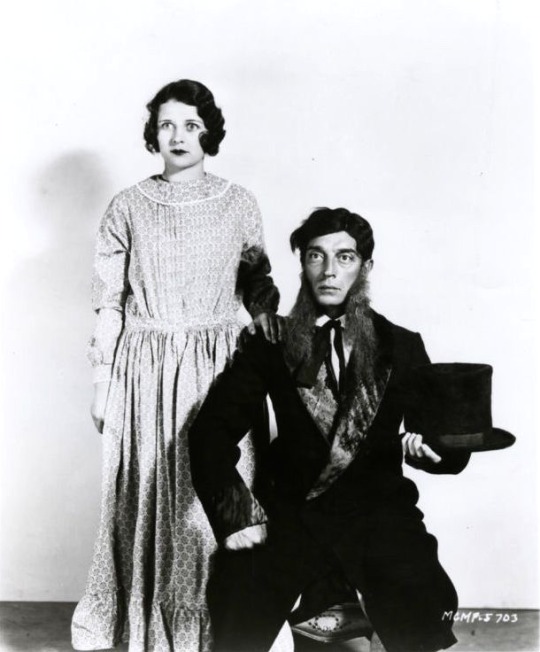

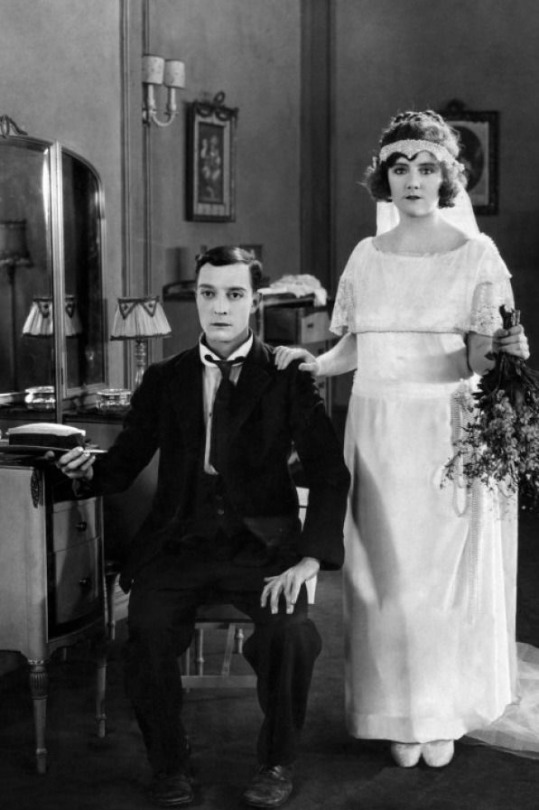
Why is he like this?
#buster keaton#silent movies#margaret leahy#marceline day#marion mack#three ages#the general 1926#the cameraman#the cameraman 1928#comedy#1920s#silent film#silent comedy#1920s cinema#golden age of hollywood#hollywood#slapstick
94 notes
·
View notes
Text
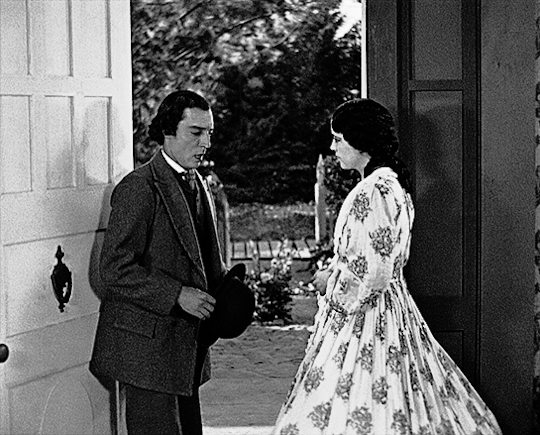
The General - 1926
#buster keaton#marion mack#the general#1926#1920s#silent film#silent comedy#silent cinema#silent era#pre code#pre code hollywood#damfino#damfinos#old hollywood#gifs#vintage hollywood#buster edit#black and white#slapstick#pre code film
35 notes
·
View notes
Photo
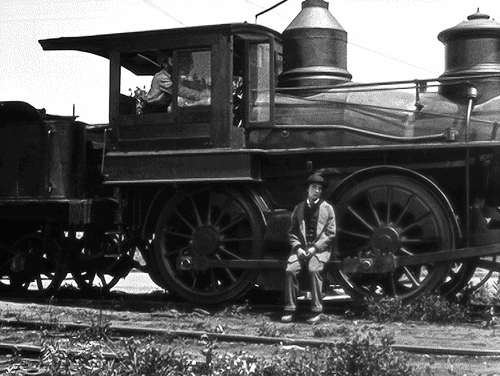
There were two loves in his life: his engine and...
The General, Buster Keaton and Clyde Bruckman (1926)
#Buster Keaton#Clyde Bruckman#Marion Mack#Glen Cavender#Jim Farley#Joe Keaton#Frederick Vroom#Frank Barnes#Charles Henry Smith#Mike Donlin#Bert Haines#Devereaux Jennings#1926
121 notes
·
View notes
Photo
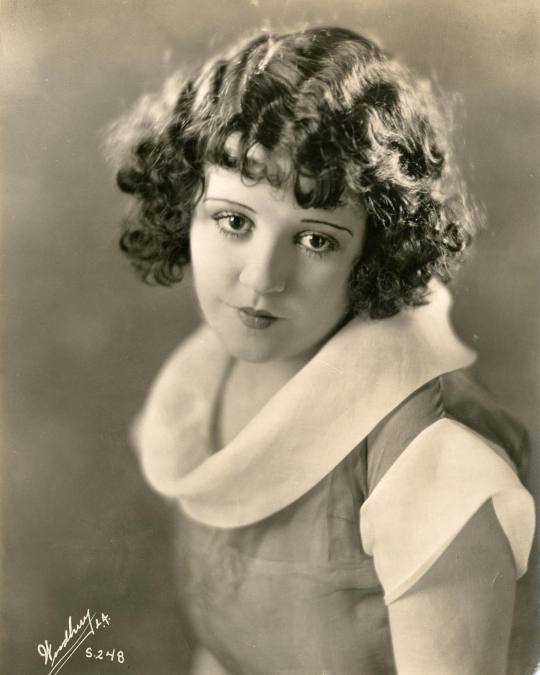
Marion Mack (1920′s)
#marion mack#1920's#silent screen beauty#mack sennett bathing beauty#best remembered for her role as annabelle lee in the general (1926)#gorgeous close up portrait#cropped photo#silent hollywood
25 notes
·
View notes
Text
'The General' – Buster Keaton's one-man Civil War on Prime Video and Criterion Channel
Buster Keaton was one of the greatest filmmakers of the silent era and The General (1926) has been hailed as his greatest achievement.
The Great Stone Face stars as Southern railroad engineer Johnny Gray, a man with only two loves: the sweet Annabelle Lee (Marion Mack) and his trustworthy engine, the eponymous General. When Fort Sumner is fired upon he’s one of the first to enlist, but when the…

View On WordPress
#1926#Amazon Prime Video#Blu-ray#Buster Keaton#Clyde Bruckman#Criterion Channel#DVD#Marion Mack#The General#VOD
3 notes
·
View notes
Text

@tcmparty live tweet schedule for the week beginning Monday, September 04, 2023. Look for us on Twitter…watch and tweet along…remember to add #TCMParty to your tweets so everyone can find them :) All times are Eastern.
Tuesday, Sept. 05 — 4:30 p.m.
THE SECRET SIX (1931)
A secret society funds the investigation of a bootlegging gang.
#schedule#wallace beery#lewis stone#johnny mack brown#jean harlow#majorie rambeau#clark gable#ralph bellamy#george hill#FRANCES MARION#crime#pre-code#popular pre-code picture#MGM#tcm party#tcmparty#classic movies#classic film#classic Hollywood#live tweet#turner classic movies#1930s#1930s film
9 notes
·
View notes
Text
Echo Review- A Good Stopgap Measure Of A Series That Will Help Wet The Appatite's Of Fans Wanting More Street Level Heroes
Deaf superhero Maya Lopez/Echo (Alaqua Cox) first appeared in the Hawkeye limited series on Disney +. She was mentored by Wilson Fisk, aka The Kingpin (Vincent D’onofrio) before finding out the truth about who killed her father. She got revenge on the Kingpin, shooting him in the eye and leaving him in a coma before fleeing back to her home in Oklahoma. This kind of act couldn’t go unpunished and…
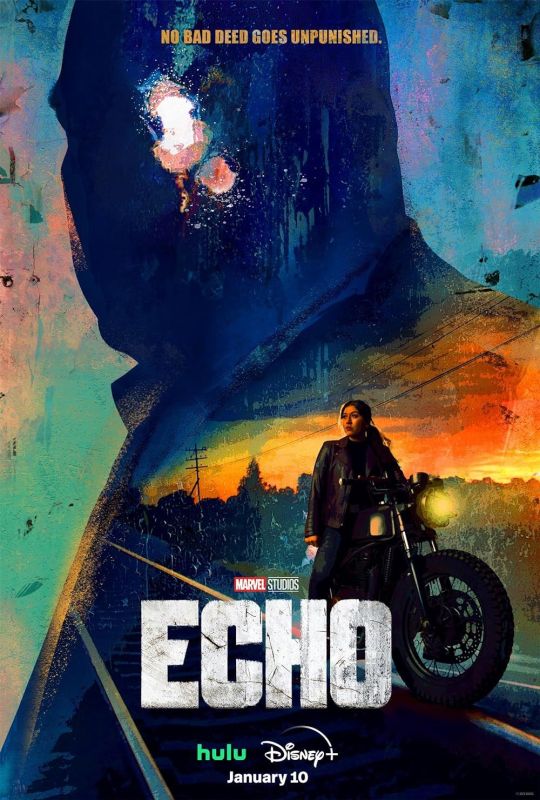
View On WordPress
#Alaqua Cox#Charlie Cox#Chaske Spencer#Cody Lightning#Disney#Dsvid Mack#Echo#Graham Greene#Joe Quesada#K Devery Jacobs#Marion Dayre#Marvel Studios#Tanto Cardinal#Vincent Donofrio#Zahn McClarmon
3 notes
·
View notes
Text

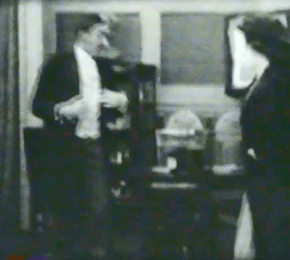
Mack Sennett and Marion Leonard in Lucky Jim (1909, D.W. Griffith)
0 notes
Text
Sailor Beware
With a blend of humor, romance, and physical comedy, "Sailor Beware" weaves a delightful narrative filled with lighthearted moments and unexpected twists.
I have not reached one of my favorite Dean Martin/Jerry Lewis films, though not my all-time favorite of their collection. Their second military film, the 1952 Hal Walker directed “Sailor Beware” is a movie black and white musical comedy, I’ve watched many times over, usually when I’m feeling down, though it has been a while. This film is adapted from a 1933 play written by Kenyon Nicholson and…
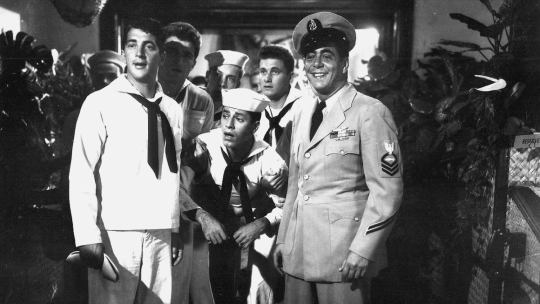
View On WordPress
#comedy#Corinne Calvet#Dan Barton#Dean Martin#Don Wilson#erry Livingston#Film#Hal Walker#James B Allardice#Jerry Lewis#John Grant#Kenyon Nicholson#Leif Erickson#Mack David#Marion Marshall#Martin Rackin#Mary Treen#Mike Mahoney#Movie Review#Movies#musical#Robert Strauss#romance#Skip Homeier#Vince Edwards
1 note
·
View note
Text
Co w jazzie piszczy [sezon 1 odcinek 33]
premierowa emisja 27 grudnia 2023 – 18:00
Graliśmy:
Geri Allen and Kurt Rosenwinkel “Simple #2” z albumu “A Lovesome Thing” – Motema Music / Heartcore Records
Bill Evans “How My Heart Sings” z albumu “Tales. Live in Copenhagen (1964)” – Elemental Music Records
The Dave Brubeck Quartet “When the Saints Go Marching In” z albumu “Live From The Northwest, 1959” – Brubeck Editions
Oscar…

View On WordPress
#Ahmad Jamal#Bill Evans#Brubeck Editions#Cadillac Music#Cal Tjader#Co w jazzie piszczy#Dave Brubeck#Duke Robillard#Duke Robillard Organ Trio#Ed Thigpen#Elemental Music#Elemental Music Records#Günter Hampel#Geri Allen#Heartcore Records#Jazz Detective#Kurt Rosenwinkel#Mack Avenue Records#Marion Brown#MIG Music#Mike Westbrook#Motema Music#Oscar Peterson#Ray Brown#Resonance Records#The Dave Brubeck Quartet#Wes Montgomery#Wynton Kelly#Zzebra
0 notes
Text

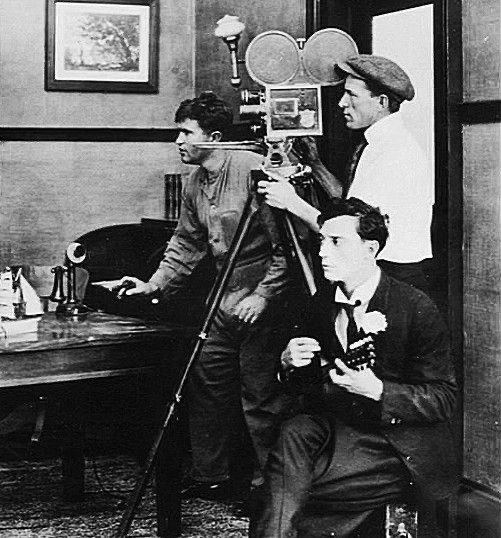


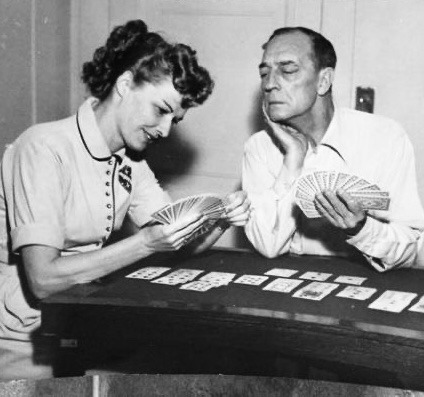
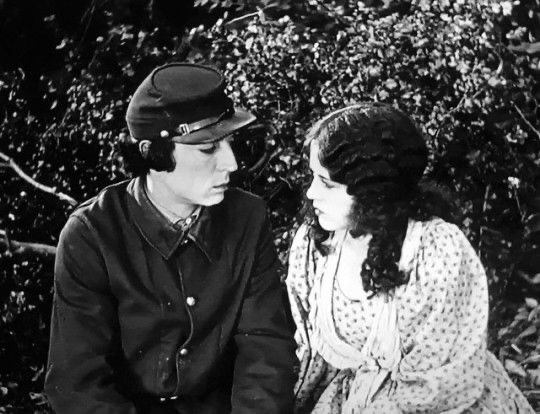
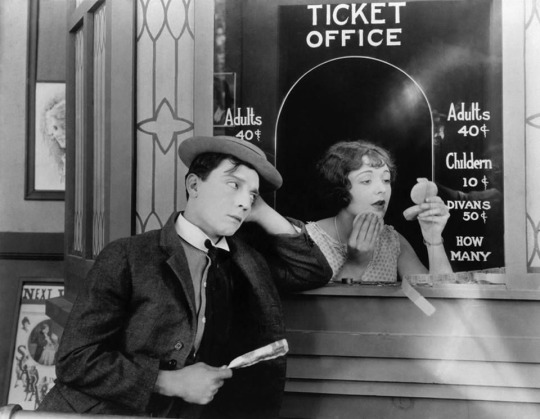

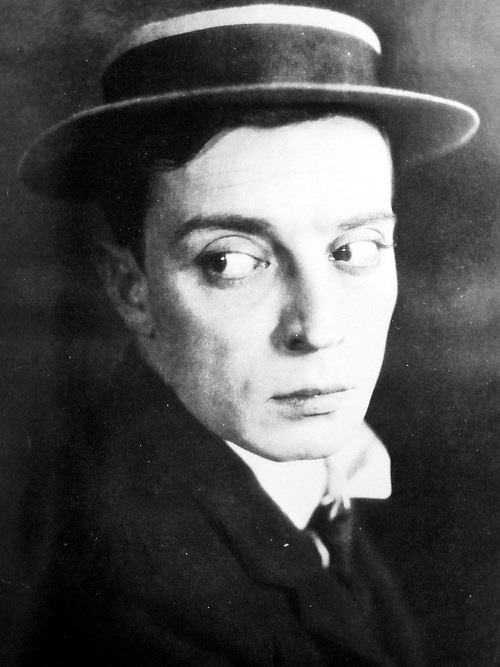
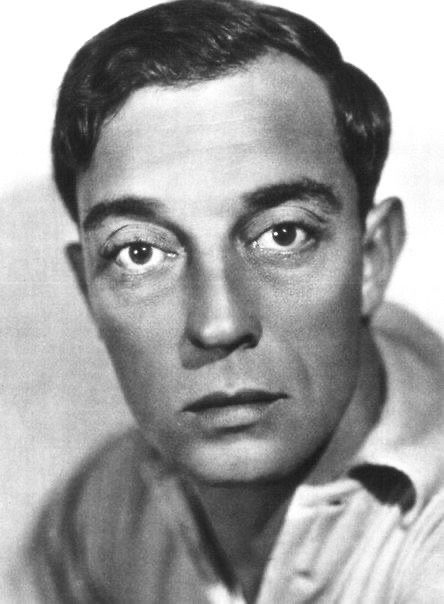
Buster 💕
#buster keaton#silent movies#comedy#1920s#silent film#silent comedy#1920s cinema#golden age of hollywood#hollywood#slapstick#1930s#vaudeville#1910s#eleanor keaton#marion mack#sherlock jr#the general 1926#roscoe arbuckle#al st john
55 notes
·
View notes
Photo

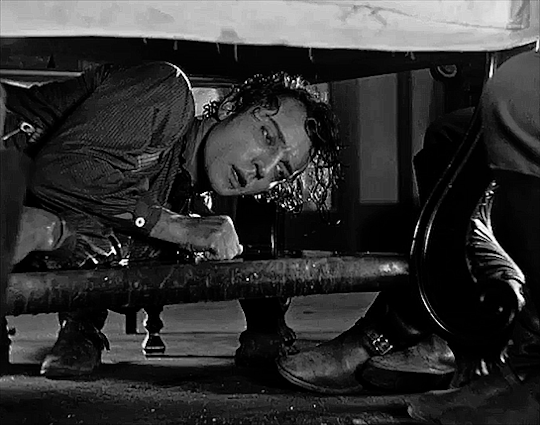
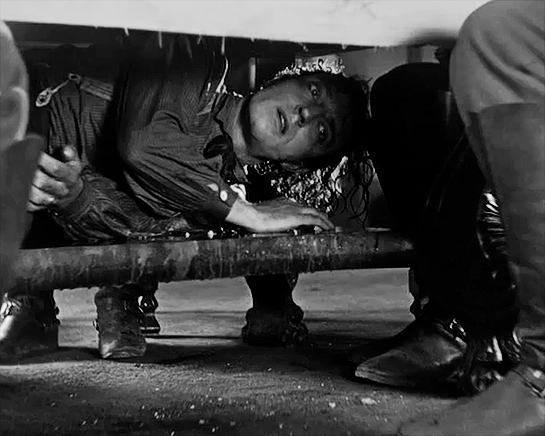



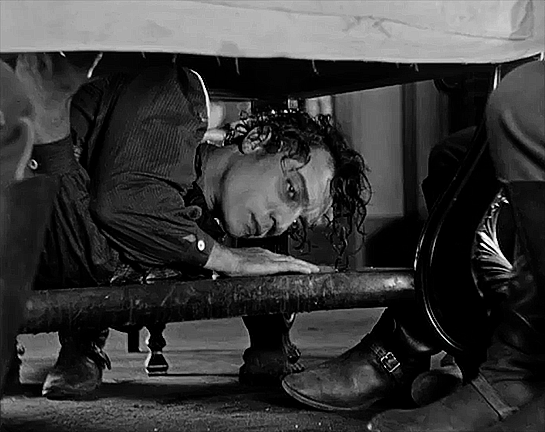

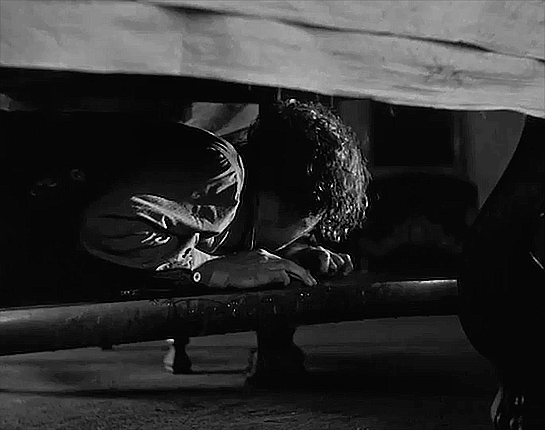

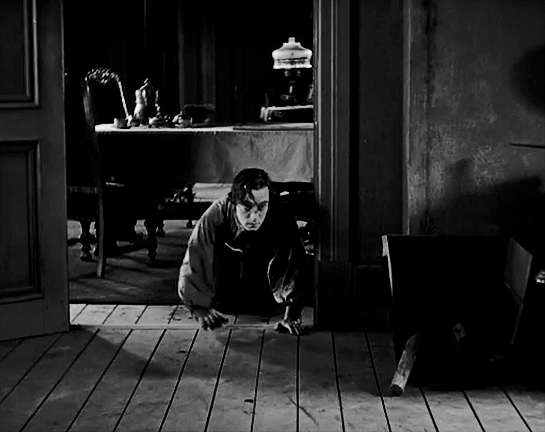
The General (1926)
#buster keaton#marion mack#the general#1926#1920s#black and white movies#silent film#silent films#gifs#old hollywood#pre code hollywood#Buster Edit#damfino#wet curls
60 notes
·
View notes
Text

Buster Keaton's The General, starring Buster Keaton and Marion Mack (1975) edited by Richard J. Anobile
From the cover: "The Film Classics Library presents the most accurate and complete reconstruction of a book in film form. Over 2,100 frame blow-up photos shown sequentially and coupled with all the original dialogue frames from the film allow you to recapture this film classic in its entirety."
Keaton's The General (1926) has been in the public domain since 1954 and is part of our Public Domain Film Festival.
The Browne Popular Culture Library (BPCL), founded in 1969, is the most comprehensive archive of its kind in the United States. Our focus and mission is to acquire and preserve research materials on American Popular Culture (post 1876) for curricular and research use. Visit our website at https://www.bgsu.edu/library/pcl.html.
#bgsu#libraries on tumblr#buster keaton#the general#buster keaton's the general#silent film#public domain
5 notes
·
View notes
Photo
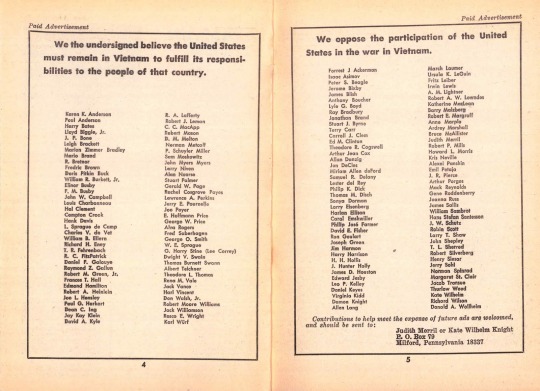
Vietnam War - Galaxy Science Fiction Magazine, June 1968
Sourced from: http://natsmusic.net/articles_galaxy_magazine_viet_nam_war.htm
Transcript Below
We the undersigned believe the United States must remain in Vietnam to fulfill its responsibilities to the people of that country.
Karen K. Anderson, Poul Anderson, Harry Bates, Lloyd Biggle Jr., J. F. Bone, Leigh Brackett, Marion Zimmer Bradley, Mario Brand, R. Bretnor, Frederic Brown, Doris Pitkin Buck, William R. Burkett Jr., Elinor Busby, F. M. Busby, John W. Campbell, Louis Charbonneau, Hal Clement, Compton Crook, Hank Davis, L. Sprague de Camp, Charles V. de Vet, William B. Ellern, Richard H. Eney, T. R. Fehrenbach, R. C. FitzPatrick, Daniel F. Galouye, Raymond Z. Gallun, Robert M. Green Jr., Frances T. Hall, Edmond Hamilton, Robert A. Heinlein, Joe L. Hensley, Paul G. Herkart, Dean C. Ing, Jay Kay Klein, David A. Kyle, R. A. Lafferty, Robert J. Leman, C. C. MacApp, Robert Mason, D. M. Melton, Norman Metcalf, P. Schuyler Miller, Sam Moskowitz, John Myers Myers, Larry Niven, Alan Nourse, Stuart Palmer, Gerald W. Page, Rachel Cosgrove Payes, Lawrence A. Perkins, Jerry E. Pournelle, Joe Poyer, E. Hoffmann Price, George W. Price, Alva Rogers, Fred Saberhagen, George O. Smith, W. E. Sprague, G. Harry Stine (Lee Correy), Dwight V. Swain, Thomas Burnett Swann, Albert Teichner, Theodore L. Thomas, Rena M. Vale, Jack Vance, Harl Vincent, Don Walsh Jr., Robert Moore Williams, Jack Williamson, Rosco E. Wright, Karl Würf.
We oppose the participation of the United States in the war in Vietnam.
Forrest J. Ackerman, Isaac Asimov, Peter S. Beagle, Jerome Bixby, James Blish, Anthony Boucher, Lyle G. Boyd, Ray Bradbury, Jonathan Brand, Stuart J. Byrne, Terry Carr, Carroll J. Clem, Ed M. Clinton, Theodore R. Cogswell, Arthur Jean Cox, Allan Danzig, Jon DeCles, Miriam Allen deFord, Samuel R. Delany, Lester del Rey, Philip K. Dick, Thomas M. Disch, Sonya Dorman, Larry Eisenberg, Harlan Ellison, Carol Emshwiller, Philip José Farmer, David E. Fisher, Ron Goulart, Joseph Green, Jim Harmon, Harry Harrison, H. H. Hollis, J. Hunter Holly, James D. Houston, Edward Jesby, Leo P. Kelley, Daniel Keyes, Virginia Kidd, Damon Knight, Allen Lang, March Laumer, Ursula K. LeGuin, Fritz Leiber, Irwin Lewis, A. M. Lightner, Robert A. W. Lowndes, Katherine MacLean, Barry Malzberg, Robert E. Margroff, Anne Marple, Ardrey Marshall, Bruce McAllister, Judith Merril, Robert P. Mills, Howard L. Morris, Kris Neville, Alexei Panshin, Emil Petaja, J. R. Pierce, Arthur Porges, Mack Reynolds, Gene Roddenberry, Joanna Russ, James Sallis, William Sambrot, Hans Stefan Santesson, J. W. Schutz, Robin Scott, Larry T. Shaw, John Shepley, T. L. Sherred, Robert Silverberg, Henry Slesar, Jerry Sohl, Norman Spinrad, Margaret St. Clair, Jacob Transue, Thurlow Weed, Kate Wilhelm, Richard Wilson, Donald A. Wollheim.
20 notes
·
View notes
Photo

Buster Keaton in The General (Buster Keaton and Clyde Bruckman, 1926)
Cast: Buster Keaton, Marion Mack, Glen Cavender, Jim Farley, Frederick Vroom, Charles Smith, Frank Barnes, Joe Keaton, Mike Donlin, Tom Nawn. Screenplay: Buster Keaton, Clyde Bruckman, Al Boasberg, Charles Henry Smith, based on a book by William Pittenger. Cinematography: Bert Haines, Devereaux Jennings. Art direction: Fred Gabourie. Film editing: Buster Keaton, Sherman Kell.
The Civil War had been over for 60 years when The General was made, and from the tone of it you might think the South had won. That was, however, the prevailing attitude in Hollywood, and would remain so for perhaps another 40 years. The reason usually given for Hollywood's avoidance of treating the Southern states as what they really were -- i.e., racist traitors -- is a fear of losing the considerable market that the former states of the Confederacy constituted. So The General seems biased toward treating the Confederacy as a genteel homeland full of honorable, self-sacrificing heroes. There's no shying away from waving the Confederate battle flag as there would be today, and the strains of "Dixie" are used to stirring effect even in the score composed for the restored version -- as they would have been in any theatrical showing in the year of its release. Sentimentality about the Southern past held on for so long in large part because Hollywood encouraged it, and it still enables politicians to treat unsentimental views of history as needlessly “woke.” But The General is a great film despite its wrongheaded view of history, and Keaton is one of the masters of the medium. Every time I watch it I see something new: This time, for example, I was taken with the sequence near the start of the film when Johnnie Gray (Keaton) arrives home with the first of his two loves (his engine, the General) and goes to see the other love, Annabelle Lee (Marion Mack). He is trailed to her house by two small boys, following in single file, and unknown to them Annabelle joins the little procession. Arriving at her door, he knocks, only to notice with a double-take that she's right behind him. They enter her living room, with the two boys following and seating themselves on the couch to observe. Johnnie sees them, pretends that he's leaving, goes to the door, ushers them out first, and then closes the door behind them. It's a simple gag routine of no importance to the plot (we never see the boys again), but it's executed with such straight-faced precision, as if it were being performed to a metronomic beat, that it becomes a small delight. Henri Bergson's theory of comedy is as unreadable as most theories of comedy are, but he makes a point that some things are funny because they show human beings behaving mechanically. Human beings are elastic and unpredictable, and when they turn inelastic and predictable, they can become funny. Almost everything in The General is done with this straight-faced precision, so that we laugh even when Keaton departs from it. Marion Mack proves herself a game performer here, subjected to all sorts of torments from being caught in a bear trap to being tied in a sack and flung into a boxcar to being drenched with water. Throughout it all she remains a ditz, and we often want to throttle her because of it. So when Keaton gives in to the exasperation we are all feeling with her, he does start to throttle her -- and then, endearingly, changes his mind and kisses her.
7 notes
·
View notes
Text

a follower who shall remain nameless reblogged a post from me with these tags, and after i stopped laughing (i'm not sure they realized who they were reblogging from), i had to dig up the mortifying ordeal of being known article. buster keaton has officially become my herd of goats, complete with an "oof" shared accidentally (which makes it even funnier that one of his short films is named The Goat.) i keep thinking of one line in particular from that article: "we don't give other people credit for the same interior complexity we take for granted in ourselves." obviously buster's swoon-worthy, it's plain to see. and just as obviously, he's not.
honestly that's as deep as i'll get in this post. i'm making it for self-interested reasons: partly to swoon, partly to explain myself to the tagger in case this crosses their dash, and partly to laugh at the universe's sense of humor. Why Is Buster Keaton, Cute Twink, Driving User kaasknot Bananas? stay tuned!
(under a readmore to spare the ppl who just don't fucking care)
he was quiet and shy. he had his circle of friends, and he was often surrounded by people. but unless you were part of that inner circle, he kept to himself—as marion mack can attest, having broken through his reserve over the course of filming of The General. he was, by all accounts, terrible at being a movie star. he hated crowds, hated attention, hated pressing the flesh (all of which hurt his box office returns; he was popular, but he didn't have the staying power of chaplin or lloyd because he didn't have it in him to face his fans). his tastes were too plain to be a trendsetter; he lived the hollywood lifestyle mostly because his first wife, natalie talmadge, set the stage. he just wanted to make movies and play cards with his friends. and that is so relatable it hurts.
he was humble. buster almost never took full credit for his movies, often putting a co-director as full director on the title card. eddie cline, a frequent colleague in the early days, said that he hardly earned a cent of his director credit, that it was all buster. moreover, during interviews in his later years, buster almost always said "we did," or "we filmed"—not "i did," or "i filmed." he was a true collaborator, who valued the input of others and wasn't too proud to accept help or take advice. (not to say he wasn't ever proud—but he never let it reach the point of arrogance. insert snarky commentary here about chaplin's control issues on set.)
on a related note, his coworkers loved the absolute shit out of him. clyde bruckman, one of his writers, said "keaton was a man you worked with, not for." he further went on to comment that working with buster was the best time he'd had in all of his hollywood career. that comes up constantly; most people who got the chance to work with him said their time on the keaton studios backlot was a high point in their career. kevin brownlow, film historian, went so far as to say his interview with buster was the highlight of his life. it's easier to say who didn't like working with or speaking to buster, because that list is much, much smaller (mostly co-directors who didn't grok the keaton style. and louis b. mayer).
animals loved him, too. it's sort of trite to say someone is a friend to animals, but according to his sister, louise, and his third wife, eleanor, animals flocked to him wherever he went. i tend to trust the instincts of animals over those of humans when it comes to determining character. if josephine the monkey thought buster keaton was a disney princess, then i'm going to believe her.
he was trusting and loyal to a fault (and really terrible at business). this one touches on the tragic parts of his story. but buster regarded his producer during his solo years, joe schenck, as something of a father figure—a sentiment that schenck clearly didn't reciprocate when he sold buster up the creek to MGM in 1927. and likewise, buster's first marriage fell apart acrimoniously in 1932—but while his ex-wife hated him to her grave, buster never stopped loving her. he wouldn't hear a word against schenck or natalie in his later years, no matter justified that word might have been. (and dear god, his father. somehow, buster forgave him, too.)
he was kind. i need you to read all of the above and understand that this was a kind, gentle man, who avoided conflict, who had no use for anger, and whose greatest ambition was to make people laugh. don't get me started on the ending of Battling Butler, i might not recover.
he was a fucking nerd, too. the man loved trains beyond reason, to the point of hilarity, to the point it's endearing. he used them constantly in his films, as set pieces, props, and characters in their own right. when he got old and crusty, he had a train set running through his house that carried snacks from the kitchen. even in movies where trains don't feature, such as The Cameraman, they still make their presence felt—see: the well-timed camera bomb during the pantomime in yankee stadium. i'm no train aficionado, but i've come to love trains secondhand, through buster. (he also loved baseball, but he was a yankees fan and i can't forgive that.)
his comedy was smart. that's tough to believe, given it's the same genre as the three stooges—i still haven't convinced my grandmother that keaton movies are worth watching—but it's true. his gags were intricately constructed, expertly timed, and relied more on intellectual humor than potty humor. he was a master of cinematography; several film historians have commented on his uncanny ability to place the camera exactly where it needed to be for the perfect shot. and his sense of timing was impeccable. unlike most feature-length comedies of the era, buster kept the first couple reels (i.e. the first 20min or so) of his films light on humor, to set the stage for later laughs. then he'd use dramatic tension to heighten the audience's investment, so that when he finally set off the punchline, you're laughing in relief as much as due to the joke itself. (and he knew when the fuck to end a joke, too. neither his mentor, roscoe arbuckle, nor the MGM writers had that touch. but buster, on his own films? he never let a gag get stale.) finally, he never threw a pie in a film where he had creative control. not one. that was his main ideological difference with arbuckle: arbuckle aimed his comedies at children, while buster wanted to tailor them for adults. when he got creative control, the gags he produced were never flat: they had layers of emotion and plot constructed into them. he didn't tug on your heartstrings the way chaplin did (some of that aforementioned pride), but he made jokes that tickled your brain, not just your funny bone—through optical illusions, irony, absurdity, or just plain old "how did he survive that stunt?!"
by far the most subjective (and significant) reason i'm obsessed with buster keaton, though, is that his brainweasels have an alarming amount of crossover with my own. the closer i get to buster, the more i understand myself. recognition of the self through the blorbo, as the shitpost states.
now i don't want to gloss over his dark side, in all this adoration. his films are a hundred years old; he grew up in a cultural stew of racism, antisemitism, sexism, and homophobia, and that's reflected in his movies. he thought blackface routines were funny, he was apathetic toward politics, and cheated flagrantly on his first wife (although bizarrely, that's almost justifiable, given the circumstances). every moment on film where he respects a woman's boundaries or listens to a soft no, there's another moment in a different film where he treats his co-star like baggage or as a prop. he was not, and will never be, woke. but by all extant accounts from people who knew him, worked with him, and/or loved him, buster keaton was a good man, a good friend, and once he met the right woman, a good husband. (and an absolutely driven worker, like goddamn.)
and that's why i'm still frothing over buster keaton. if it was just about looks, i'd have gotten bored months ago.
29 notes
·
View notes